What it was like doing SEO in the year 2000
It’s 2015, but if you talk to anyone that was an SEO back in the proverbial day, you’d learn there wasn’t a school program for it and we all kind of fell into it usually in really interesting ways. In fact, most of us have some interesting unrelated degrees or we started in high school.
To set the stage of what the year 2000 was like… I worked as a journalist till the end of 1999, and while we had a newswire service, we did not have internet. It was an interesting time in technology, Y2K did not kill the world, the “Dot Com bubble” bursts, Windows 2000 launched, AOL and Time Warner merge, and the ILOVEYOU virus shuts down computers globally and we manipulate algorithms to help our clients rank in the top 10 for almost every keyword they wanted.
I moved to the UK from Canada in 2000. I was hired by Hyperlink Marketing because I was a journalist but not to be a “writer” – to “do” SEO. My first thought, what the heck is SEO? If I’m honest, the only reason I want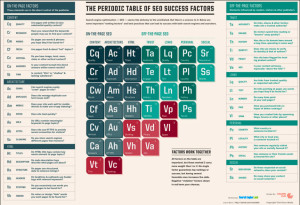 ed to work there was the owner had his own private helicopter and I thought I could get free trips all over Europe – who knew I’d love, live and breathe algorithms 15 years later and work in another really great digital marketing agency who won Google’s Search Excellence Award two years in a row.
ed to work there was the owner had his own private helicopter and I thought I could get free trips all over Europe – who knew I’d love, live and breathe algorithms 15 years later and work in another really great digital marketing agency who won Google’s Search Excellence Award two years in a row.
Hyperlink was cutting edge – they had their own SEO software called Inceptor and my role was to “keyword the hell outta sites”, create sites, pages for client’s websites and “SEO the hell outta of it all”. I am a walking thesaurus, but I hardly knew how to use Wordperfect let alone anything in the geek-realm. I do, however, ask a multitude/plethora/never-ending hoard of questions… During that time there weren’t many companies using SEO, let alone people doing SEO work, so it was pretty easy to rank and clients loved us. Some of our clients and first SEO/digital marketing adopters were BBC, Bank of Scotland, AutoBytel and SpecSavers. Trailblazers and early adopters.
What it was like in the year 2000 for SEO.
Pedantics…There was no such term called “digital marketing” back in 2000, nor could we decide if it was web marketing, online marketing, internet marketing or something completely different. You could never tell anyone what you do for a living. Not because it was a secret but masses of people didn’t really understand or know how to use the internet let alone what the heck an algorithm was. (In all honesty, I tell people I work in Digital Marketing now. My parents think I work in IT). Like our DirectAccessDigital.com, Co-Founder, Eric Rodgers says, “in 2015 we need to get away from calling it “digital marketing”; it should just be “marketing”. You can’t only do traditional anymore. It’s a combination.” Virtually no one was doing SEO so it was easy to game the system. There was no term “black hat” or “white hat” back then. We were just in a race to rank.
Indexing Pages: Search engines results pages (SERPS) would fluctuate rankings daily! You had to submit each new page of your website to about 30 different search engines, for every client, every day but it had to be at least 24 hours in between. It was like data-entry on steroids. You’d start on Monday at 9am, Tues by 10am… While this doesn’t seem like a daunting task when you’re adding quality content a few times a week, back then we were creating hundreds of pages a day. We’d start on a Monday trying to rank for terms and by Friday we’d own at least three results in the top 10 SERPs. Search engines would drop pages for no apparent reason and you’d have to resubmit them. Search engines weren’t indexing dynamic URLs.
Google was not an everyday word nor the behemoth it is today. Some search engines back then included:
Keyword research: we basically used a thesaurus, common sense and other basic information to know what to try and rank for. Yes, we filled in the metakeywords by the thousands of keywords and “keyphrases” (keywords with more than one word) on page. You could sometimes rank by only putting the keyword in anchor text.
Content was about keyword density… For example, in 2000 content would read like “we are going canoeing. Canoeing is fun. When I go canoeing there is water.” Now you want to use Latent Semantic Indexing when creating content. Meaning you want to put related words to the keyword. “The water was cool when we went canoeing in Lake Erie. Our paddles were wooden and would gently stroke by the bow of the boat. When we saw the heron we knew it was a great day for canoeing.” The more pages you had the better – quantity over quality. Doorway pages – enough said.
Page-level ranking: You could rank for a totally unrelated page to what your website was about. You could do that now with a gazillion hours of work and a lot of favors, but it was easy back then. You would create a page and stuff as many keywords as you can on the page. White on white. Whatever it took (now known as blackhat techniques. Google will penalize your site now.) There wasn’t an ethics question back then, we weren’t black hat, but we were.
Backlinks: We built one page websites for backlinks because the algorithm didn’t use relevancy and all of the other metrics. I once built a page that had only a blinking sheep on it for content. If you could get a footer link on a high PR (PageRank) site you’d be rocketed up in the SERPs. Each page had to link to another page of your website.
We were on dial-up!
Search Engines vs. Directories: You could pay for placement in search engines. There were search engines and directories. They were different but the same. DMOZ and Yahoo Directory were the big directories. Later Y!Directory worked on pay-per-inclusion model. No one uses it anymore for SEO.
NO Social Media, wearable tech, smartphones…
PageRank™ A Google toolbar widget called PageRank developed by Larry Page and Sergey Brin in 1996 as part of a research project about a new kind of search engine. Sergey Brin had the idea a page is ranked higher as there are more links to it. The plan was to have as many PR4s (out of 10) or better. Now, linking is a whole science and based on quality and relevancy.
Passive Income: we all built passive income websites. Back in the day you’d make a bunch of websites and leave them and you’d make some revenue. Now, unless you’re keeping your content fresh, doing stuff in the social sphere and a gazillion other things, it’s really easy to lose rankings.
Even Playing Field: the big brand guys and the small companies had an even playing field in the SERPs now the SERPs are skewed with the big guys.
So much more…
15 years later I am still loving SEO – why? It changes but it stays the same, my career has been a blast and I feel like a professional student getting to learn amazing things about things I would maybe never seek out. I’ve worked on an excess of 300 websites in all different verticals for publishers, not-for-profits, Universities, big brands, start-ups, in the global sphere and locally. I admit I love local search and I kick ass in pub quizzes.
If you were in SEO in 2000 what do you remember?
Direct Access Digital is a full service boutique agency provides advanced onpage and offpage SEO services. Contact Us for advanced website audits, SEO strategy and implementation.
Senior Digital Strategist, Ceri Nelmes. With 15+ years’ experience in digital, Ceri began as an SEO at a UK agency after working as a Canadian journalist for seven years. She’s worked on almost every vertical in almost every digital role end-to-end from wireframes, content, UX, testing, site architecture, content, social media, ecommerce, affiliate, monetization, lead generation, media sales/buying, to advanced SEO and marketing for big brands, start-ups and not-for-profits like Chapters Indigo, Danby, Ancestry.ca to Bank of Scotland, BBC, and University of Toronto. She was the managing editor for one of the largest N American website publishers.

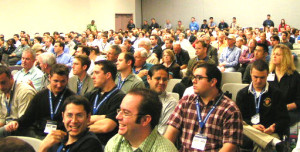
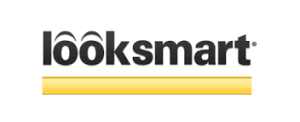
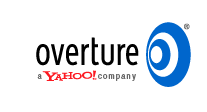



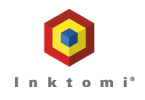

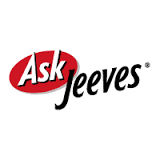

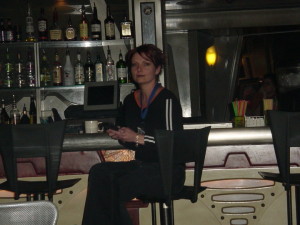





Comments on this entry are closed.